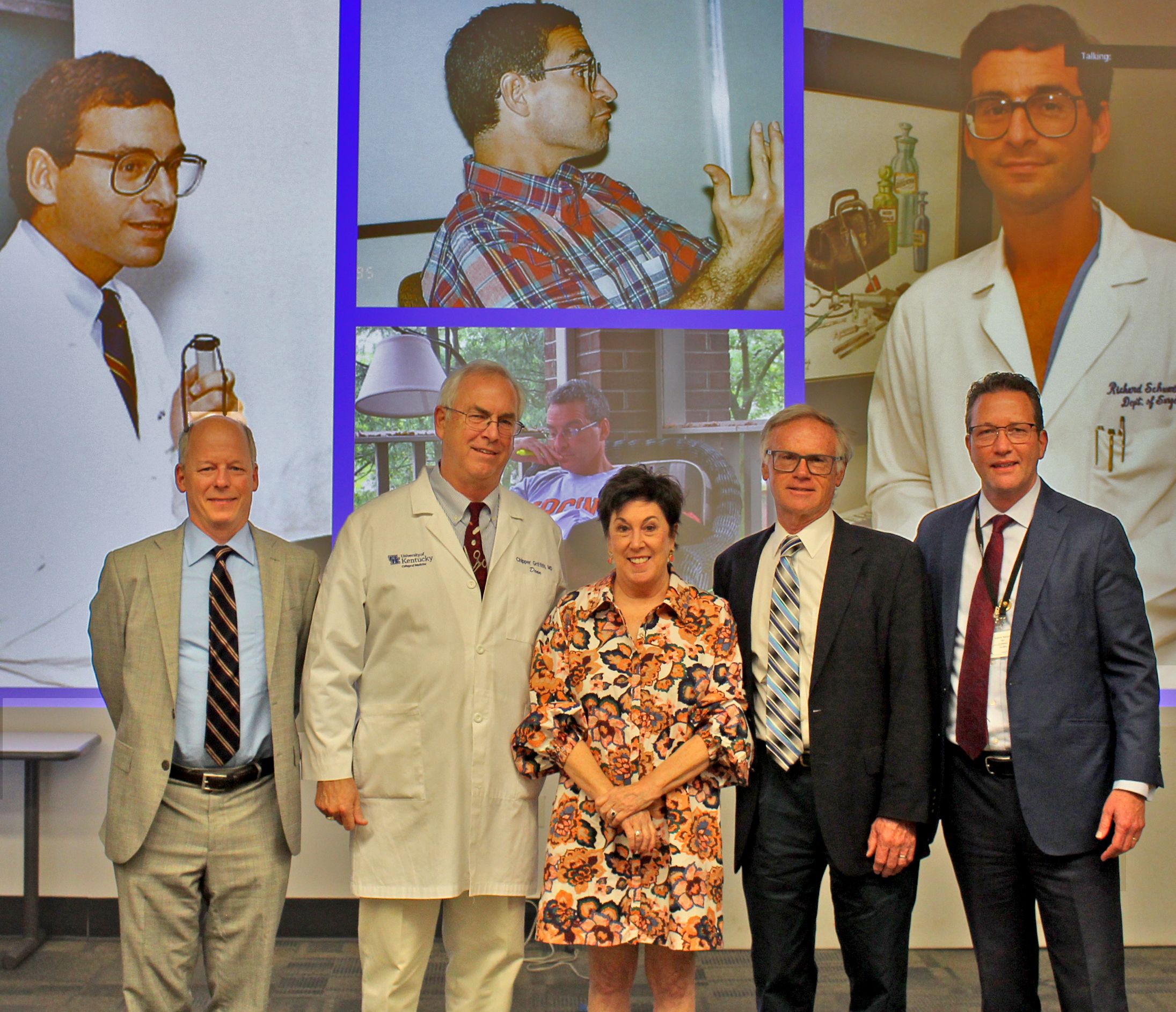By Josh Shepherd
In a moving tribute to his friend and colleague, Charles "Chipper" Griffith, MD, MSPH, dean of the University of Kentucky College of Medicine, described the late Richard Schwartz, MD, as a physician and teacher who "gave his very self" to his learners and patients. Dr. Schwartz’s passion for learning was a quality he used to encourage medical students not just to merely pursue surgery as a profession, Dr. Griffith said, but to aspire to higher levels of achievement.
Dr. Griffith elaborated on that quality as the 2025 distinguished guest speaker for the 11th annual Richard W. Schwartz, MD, Memorial Lectureship on Surgical Education.
The Schwartz Lectureship, established in 2014 by the UK College of Medicine Department of Surgery, is an annual celebration of Dr. Schwartz as a respected faculty member and a nationally celebrated leader in surgical education. Following his untimely death, Dr. Schwartz' spouse, Janet Schwartz Evans, and his colleagues, Andrew Bernard, MD, and David Sloan, MD, gave founding support for the Schwartz Lectureship, which invites national medical education leaders to address current topics in the field.
The year after completing his residency in internal medicine at UK, Dr. Griffith accepted an offer to join the UK College of Medicine Department of Internal Medicine faculty and become director of the third-year meds-peds clerkship. For an aspiring young medical educator, it was a very exciting and challenging time to be in academic medicine.
The UK College of Medicine had received a major grant from the Robert Wood Johnson Foundation funding the development of highly structured, multidisciplinary joint medical clerkships utilizing the then-new approach of problem-based learning (PBL). One such joint clerkship teamed medicine under Dr. Griffith's direction with Dr. Schwartz, an experienced third-year clerkship director for surgery.
While developing and evaluating this combined clerkship model, Dr. Griffith came to appreciate the depths of Dr. Schwartz' passion for quality medical and surgical education. They published several articles on the efficacy of the Medicine-Surgery Clerkship, a concept that Dr. Griffith maintained is still "ahead of its time." More profoundly, though, the experience led Dr. Griffith to pursue an investigator-led series of studies on the correlation between teaching quality and the academic performance of medical students.
Each of these studies found a strong positive correlation between teachers who consistently earned high ratings on evaluations and the academic achievements of their students. The highest-rated teachers, said Dr. Griffith, had students who scored high on the National Board of Medical Examiner's (NBME) exam and as much as eight points higher on Step 2 of the United States Medical Licensing Exam (USMLE).
"The results of these studies demonstrate that quality teaching makes a tangible difference in students’ learning," Dr. Griffith said.
What Dr. Griffith observed in Dr. Schwartz, a giant in surgical education history, was that the best medical teaching goes beyond the set curriculum.
"If you bring your self - your passion for learning - into your teaching, you will impart to your students the privilege that is the doctor-patient relationship: the joy in critical thinking, the humility to listen to other insights, and the intellectual curiosity that comes from a lifelong embrace of learning," Dr. Griffith said.
Of the three primary concerns of physicians in academic medicine - patient care, research, and education - it is education that provides the most enduring ripple effect to medicine's future. As is evident from this annual lectureship, Dr. Griffith continued, the passion for teaching that Dr. Schwartz and many other great teachers across all disciplines possess leaves a long and enduring legacy.
